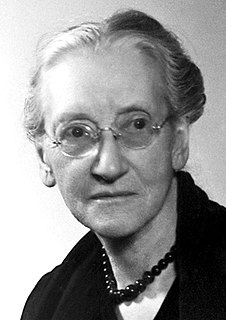A Quote by Isaac Watts
The Fondness we have for Self, and the Relation which other Persons and Things have to ourselves, furnish us with another long Rank of Prejudices.
Related Quotes
In the search for character and commitment, we must rid ourselves of our inherited, even cherished biases and prejudices. Character, ability and intelligence are not concentrated in one sex over the other, nor in persons with certain accents or in certain races or in persons holding degrees from some universities over others. When we indulge ourselves in such irrational prejudices, we damage ourselves most of all and ultimately assure ourselves of failure in competition with those more open and less biased.
Grace in women has more effect than beauty. We sometimes see a certain fine self-possession, an habitual voluptuousness of character, which reposes on its own sensations and derives pleasure from all around it, that is more irresistible than any other attraction. There is an air of languid enjoyment in such persons, "in their eyes, in their arms, and their hands, and their face," which robs us of ourselves, and draws us by a secret sympathy towards them.
Marriage may be polygamic, monogamic, polyandric, complex according to the Oneida pattern, or other, and is true marriage (I do not say perfect marriage) so long as it promotes the happiness of the persons married, and the procreation, support, and education of children, and so long as it is founded on the joint free contract of the persons married, and remains under the sanction of the organic society of which those persons are members.
Realize that illness and other temporal setbacks often come to us from the hand of God our Lord, and are sent to help us know ourselves better, to free ourselves of the love of created things, and to reflect on the brevity of this life and, thus, to prepare ourselves for the life which is without end.
A protective self-narrative during conflict and duress sometimes obscures us from seeing the worst in ourselves. When the self-sustaining haze lifts after that conflict has subsided, we may recognize in ourselves the flaws the other saw in us at the time that we didn't have the emotional bandwidth to examine in the moment.
[Grace] is given not to make us something other than ourselves but to make us radically ourselves. Grace is given not to implant in us a foreign wisdom but to make us alive to the wisdom that was born with us in our mother?s womb. Grace is given not to lead us into another identity but to reconnect us to the beauty of our deepest identity. And grace is given not that we might find some exterior source of strength but that we might be established again in the deep inner security of our being and in learning to lose ourselves in love for one another to truly find ourselves.
Yet each of us also carries another portrait with us, a picture far more important than any in our wallet. Psychologists have a name for it. They call that mental picture of ourselves, our self-image. ... there's always the person whose self-image is bent all out of shape, like a photo carried too long in a wallet.The good news of the tremendous worth we have in God's eyes can light up our inner self-portrait.


































